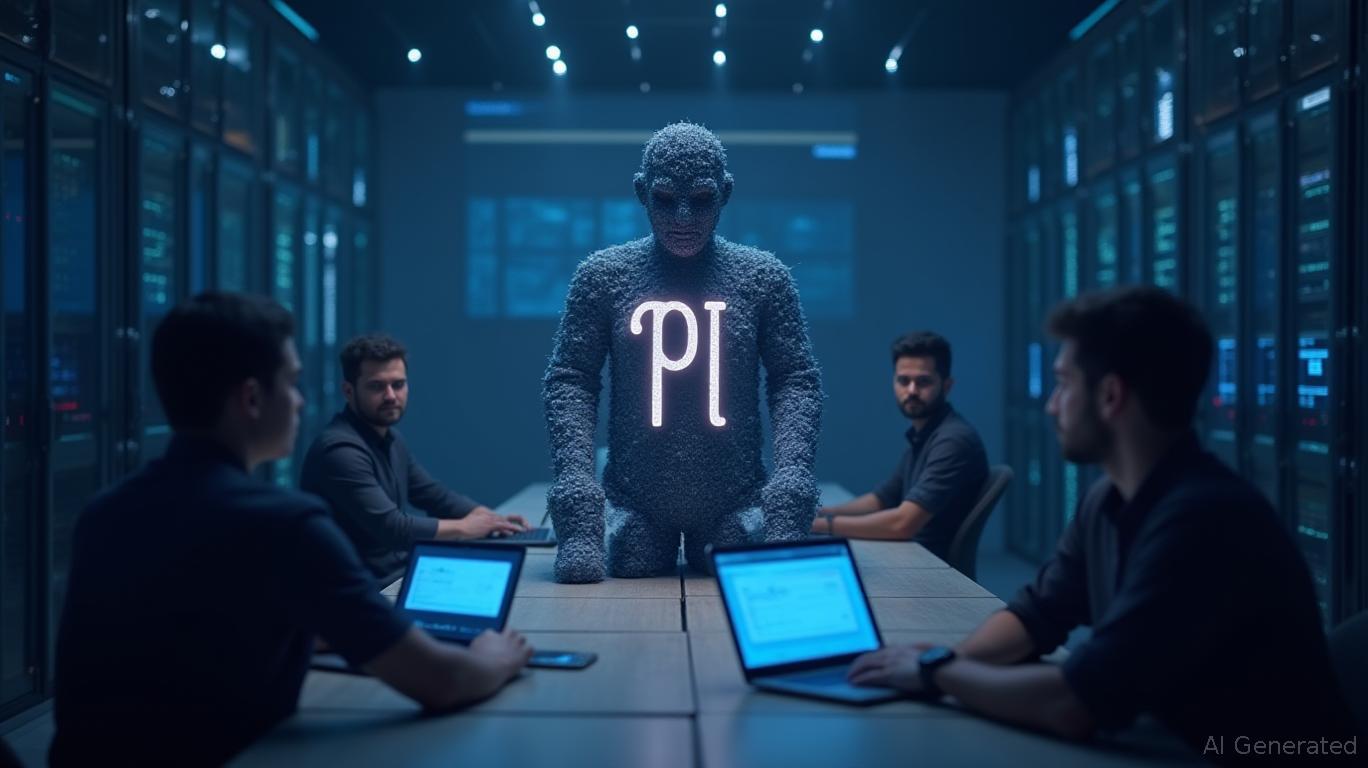OpenAI's Shift to Profit: Will Nonprofit Governance Endure with Microsoft's $135B Investment?
- OpenAI completes for-profit restructuring, granting Microsoft a 27% stake valued at $135B while retaining nonprofit oversight via a $130B equity stake. - Microsoft secures extended IP rights to OpenAI models until 2030 or AGI verification, but loses exclusivity on consumer hardware and cloud infrastructure. - The deal includes $250B in Azure cloud purchases by OpenAI and resolves legal disputes, including Elon Musk's $100B acquisition bid and regulatory objections. - Critics question the nonprofit founda
OpenAI Finalizes For-Profit Shift, Awards
OpenAI has completed its move to a for-profit structure, reorganizing as a public benefit corporation (PBC) and granting Microsoft a substantial equity share. Announced on October 28, 2025, this change forms the OpenAI Group PBC, which is overseen by the nonprofit OpenAI Foundation. The foundation now holds $130 billion in equity in the for-profit segment. Microsoft, a key investor and partner, has acquired a 27% stake valued at $135 billion, signaling a major transformation in OpenAI’s leadership and business approach, according to

The updated agreement, outlined in a joint release from both organizations, redefines their partnership. Microsoft will continue to access OpenAI’s technology through 2032, including models developed after achieving artificial general intelligence (AGI)—defined as systems exceeding human performance in most economically significant tasks. However, any AGI announcement must now be validated by an independent panel of experts, introducing oversight to the ambiguous AGI concept, as reported by
A major aspect of the agreement is OpenAI’s pledge to spend $250 billion on Azure cloud services, ensuring Microsoft remains a primary infrastructure provider even though it no longer has the first right to future compute contracts. This deal follows years of collaboration, with Microsoft investing more than $13 billion in OpenAI since 2019, as Fortune noted. The partnership has allowed Microsoft to embed OpenAI’s technology in products like Copilot, while Azure has become a vital revenue source for OpenAI, which has invested billions in cloud infrastructure during its rapid growth, according to
Regulatory approval was a significant challenge in the restructuring. Delaware Attorney General Kathy Jennings gave the green light, issuing a “Statement of No Objection” after lengthy talks with OpenAI and California officials, The Verge reported. The process also settled a lawsuit from Elon Musk, who had tried to block the transition and briefly offered $100 billion to buy OpenAI, The Guardian reported.
The new arrangement seeks to balance OpenAI’s commercial goals with its nonprofit mission. The OpenAI Foundation intends to dedicate $25 billion to healthcare, disease research, and AI safety, with more funds tied to future valuation targets, Fortune reported. Still, some critics argue the nonprofit’s control over the for-profit side is “superficial,” pointing to a lack of evidence that it has ever enforced its principles on business operations, Fortune noted.
Industry experts point out the strategic benefits for both sides. Microsoft’s share offers potential gains if OpenAI achieves its growth targets, and the extended IP rights guarantee ongoing access to advanced AI models. For OpenAI, the new structure makes it easier to attract investment and generate profits while maintaining an appearance of nonprofit oversight. The deal also allows both companies to pursue AGI independently—Microsoft can now work on AGI with other partners, and OpenAI can use other cloud providers for non-API products, as The Verge reported.
As competition in AI accelerates, the partnership between OpenAI and Microsoft remains a driving force in the field. With OpenAI’s valuation at $500 billion and Azure as a crucial infrastructure backbone, their alliance highlights the mutually beneficial relationship between AI innovation and cloud technology in shaping the future, Fortune reported.
Disclaimer: The content of this article solely reflects the author's opinion and does not represent the platform in any capacity. This article is not intended to serve as a reference for making investment decisions.
You may also like
Solana News Update: Institutional Embrace Drives Altcoin ETF Boom: Solana, Litecoin, and Stellar at the Forefront of Revival
- Altcoin ETFs surge as Solana, Litecoin, and Stellar gain institutional traction amid regulatory clarity and staking demand. - Bitwise's $223M BSOL ETF and REX-Osprey's $400M SSK highlight Solana's scalability, with 7% staking yields and $15.6B stablecoin growth. - Litecoin's $400M LTCC ETF marks a "watershed" for on-chain commerce, while JPMorgan forecasts $3-6B inflows for Solana/XRP ETFs in six months. - Stellar advances via cross-border partnerships and enterprise use cases, positioning altcoins as ke

HKMA Focuses on Wholesale Applications of e-HKD as Global Competition for Digital Currencies Intensifies
- HKMA prioritizes e-HKD for wholesale uses like cross-border settlements after Phase 2 trials, citing its credit-risk-free advantages for institutions. - Retail e-HKD rollout aims for H1 2026, pending tech/regulatory progress, with trials testing digital vouchers for local purchases. - Hong Kong plans tokenization standards to boost e-HKD integration, positioning itself as a digital asset hub amid China's stablecoin pause. - Early wholesale adoption includes tokenized asset settlements, reinforcing Hong K

MNT's Potential for a Breakout and SHIB's Burning Dilemma Amid Crypto Market's Struggle with Fed Policy Ambiguity
- Mantle (MNT) shows breakout potential with 5.85% higher futures open interest and $732.48M DEX volume, but faces descending triangle resistance. - Shiba Inu (SHIB) struggles to convert 2,713% burn rate into price gains, with 289B tokens withdrawn signaling long-term holder accumulation. - BlockDAG (BDAG) leads presales with $432M+ raised, leveraging F1 partnership and 15,000 TPS capacity to attract institutional adoption. - Fed's 25-basis-point cut probability boosts crypto risk-on sentiment, but J.P. Mo

XRP News Update: Pi Network Faces ISO 20022 Hurdle—Building Trust to Rival Ripple and Stellar
- Pi Network, with 50M users, joins Ripple/Stellar in ISO 20022 compliance efforts to bridge blockchain and traditional banking by 2025. - Finalizing sandbox testing for SWIFT compatibility, Pi aims to enable institutional interoperability through decentralized compliance APIs and real-time transaction verification. - Targeting emerging markets via Nigeria/Vietnam pilots and regulatory discussions in Kenya/Indonesia, Pi seeks to leverage its user base for retail/small business adoption. - Unlike Ripple/Ste
